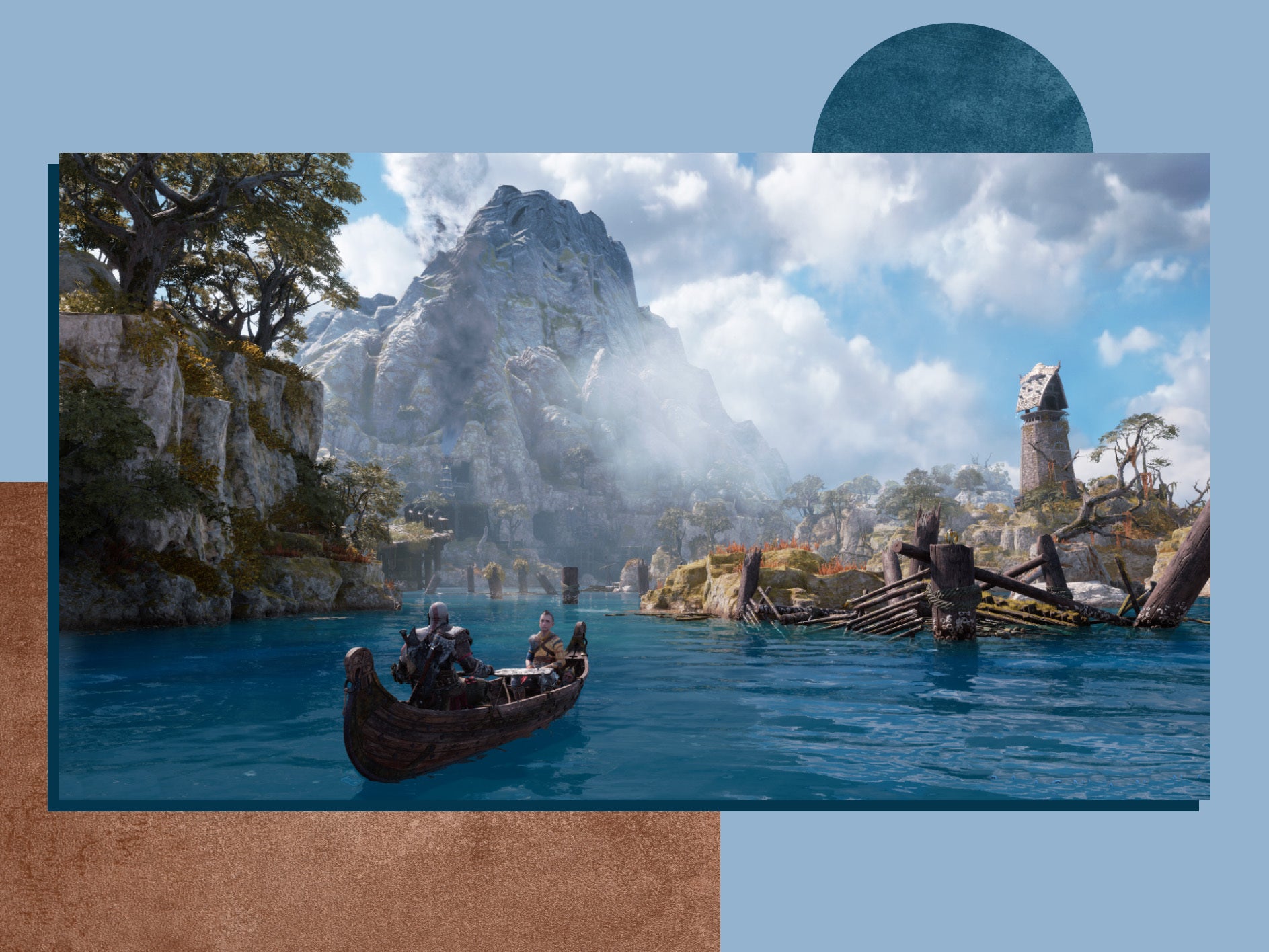God of War Ragnarok first impressions: Still waters run deep
The year’s biggest PlayStation exclusive is shaping up to be unforgettable

Your support helps us to tell the story
From reproductive rights to climate change to Big Tech, The Independent is on the ground when the story is developing. Whether it's investigating the financials of Elon Musk's pro-Trump PAC or producing our latest documentary, 'The A Word', which shines a light on the American women fighting for reproductive rights, we know how important it is to parse out the facts from the messaging.
At such a critical moment in US history, we need reporters on the ground. Your donation allows us to keep sending journalists to speak to both sides of the story.
The Independent is trusted by Americans across the entire political spectrum. And unlike many other quality news outlets, we choose not to lock Americans out of our reporting and analysis with paywalls. We believe quality journalism should be available to everyone, paid for by those who can afford it.
Your support makes all the difference.2018’s God of War is arguably one of the most impactful games of the last console generation and when Ragnarok was announced as the conclusion of Kratos’s journeys through the Norse saga, it was certainly bittersweet.
But in concluding that narrative over the course of two titles, Ragnarok has the unenviable task of living up to the original title, while still avoiding overstaying its welcome.
While the soft reboot of God of War recast its central anti-hero as a jaded father in self-imposed exile, it seems Kratos’s own growth beyond a god out for vengeance has simmered into a quiet reflection of violence in Ragnarok, despite the godly punishments he is still able to inflict.
Even in those early moments before it truly opens up, Ragnarok shows that it will be more than simply another hack-and-slash adventure with a one-shot gimmick and modern interpretations of the Norse pantheon.
We’ve had an opportunity to give our first-hand impressions of Ragnarok before the game’s November release date. There will be considerable spoilers for 2018’s God of War, if you haven’t yet had the chance to play it – which you should – so consider this your warning.
Read more:
‘God of War Ragnarok’: £64.95, Amazon.co.uk – available 9 November 2022

- Release date: 9 November 2022
- Platforms: PS5, PS4
- Developer: Santa Monica Studios
- Age rating: 18+
‘God of War Ragnarok’ preview
If 2018’s God of War was a representation of Kratos’s despondency towards grief, then Ragnarok is its quiet, introspective reflection as he contends not only with the loss of his wife, but the questions she left behind regarding their son’s heritage.
In those opening hours, Kratos’s relationship with his (now teenaged) son, Atreus, involves more mutual respect – rather than it being centred around training his subordinate – after Atreus has succeeded in proving his mettle.
But though Kratos has graduated from referring to his son as anything other than simply “Boy”, he remains aware that the newly painted target on their backs has earned them a life of hiding in a frost-bitten Midgard.

As Ragnarok begins, Fimbulwinter has set in – one of the events that was prophesied as a precursor to the eponymous world-ending event, caused by the killing of the god Baldur, which also earned the father and son pair the unwavering ire of Freya, Baldur’s mother.
The Kratos that takes up the reins in this sequel is a much different one than we’ve seen before. In diary entries with stiff biographies of the characters and creatures he encounters, his words are thoughtful, measured and diplomatic, in short, metered sentences.
He’s also more capable of empathy, understanding the reasoning for the blind rage he has caused by his actions and is insistent on only engaging in acts of violence as self-preservation.
In their escape of Midgard, the father and son pair enter Svartalfheim, the ancestral world of the dwarves, an area that was not previously seen in God of War. The region is best defined by its geyser-laden bogs and heavy industrial complex, as a result of the dwarves’ forced allegiance to the gods.

It’s also more characteristic of the previous title’s open-ended areas that can be freely explored by longboat, as well as offering distraction from the pair’s main reason for venturing into the realm with a usual slate of side objectives and other curios.
Kratos is armed with two main weapons: his leviathan axe and blades of chaos, which make a swifter return than they did in the build up to God of War’s third act. Each can be charged for additional fire and ice damage, respectively, and can also be quickly swapped between them to take advantage of status effects on different foes.
Combat, so far, is as satisfying as ever with the same familiar weight and fluidity that God of War introduced to the series. Throwing and recalling the leviathan axe, using the blades of chaos to whip enemies into the air and perfectly countering incoming blows not only brings with it a rewarding spectacle but makes it look effortless and only adds to what makes Ragnarok’s core sing.
Even the game’s first few bossfights – against giant bears, centaurs and various figures of note from the decorated Norse pantheon – are as memorable as they always have been, punctuating themselves throughout Ragnarok’s compelling and foreboding shattered worlds. Much like Kratos’s own journal musings, they’re carefully constructed and deliberate in their ferocity.
Read our full review of God of War Ragnarok on 3 November 4pm UK time
Voucher codes
If you’re looking for discounts on technology or videogames, try one of these codes:
Want to pick up a copy of the game? Find the best deals on God of War Ragnarok